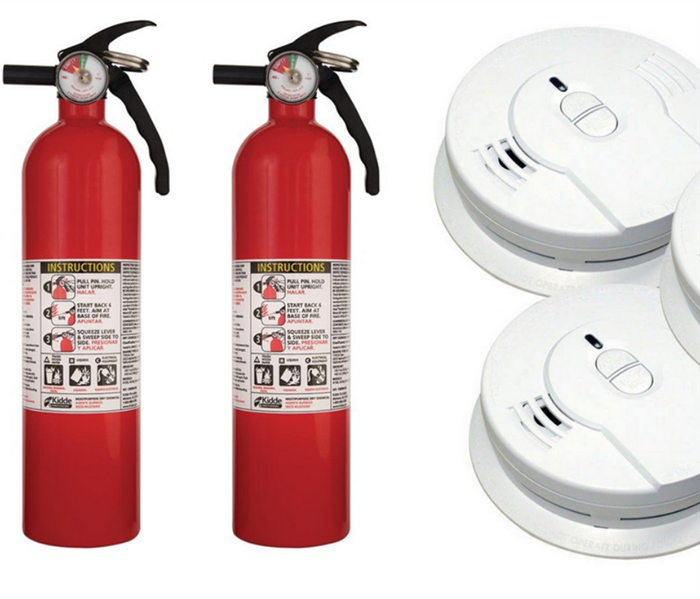Fire Risks and Prevention at Home and at Work
2/24/2021 (Permalink)
Structure fires are dangerous, even sometimes deadly, and can cause thousands of dollars in damage to homes and businesses. The cold winter months often lead to spikes in fires due to alternate heating methods.
The heat created by the flames is just one of many dangers. Smoke inhalation, fumes, and vapors are also responsible for causing life-threatening damage to people and pets. The heavy smoke will reduce visibility and make it difficult for people to escape the flames.
Luckily, many of these accidents can be avoided through fire prevention and fire safety practices. It's essential to follow home and workplace safety plans. Learning how to prevent fires in your home or business is critical to avoid dangerous situations that could put you at risk.
Know the Fire Hazards in Your Workplace
Whether it's paper, cardboard boxes, or other flammable materials, it's common to have them in your office building. However, these materials can act as a significant source of fuel to a fire if they ignite. That's why you should always keep things clean and orderly.
If you work with combustible and flammable liquids/vapors, then you'll want to be extra cautious when it comes to the storage and safety of your building. If you're using a defective extension cord or plugging too many devices into a single outlet, you could overload that circuit. By overusing the power socket, it could overheat and potentially ignite a fire. That's why you should always ensure that you only use one plug per socket.
Know the Fire Hazards in Your Home
Addressing fire hazards in your home is very important in preventing fires before they happen. Being aware of at-risks areas in your home enables you to know where you should be extra cautious.
Kitchen fires are one of the most common fires in homes. To reduce the risk of fire, never leave anything cooking or baking unsupervised. When frying, grilling, or cooking, keep dish rags and other flammable materials away from the stove. If you are cooking with oil, be careful not to splash or spill the oil near the burners as it can quickly flame up. It's essential to have a working fire extinguisher you can easily access when a fire starts while cooking.
Dangers of Space Heaters
Many people use space heaters to heat their homes or warm areas that lack sufficient heat, like a bathroom or spare bedroom. Electric space heaters can help warm a room quickly. However, they can be as dangerous as convenient if misused. Never use an extension cord or power strip with space heaters. Always plug them directly into a wall outlet. Space heaters pull a lot of power and can quickly overheat a power strip or extension cord resulting in a home fire.
Install Smoke Alarms at Every Level
It's a well-known fact that smoke alarms save hundreds of lives every year. Properly installed smoke alarms should be installed on every level of a home, including the basement. Smoke alarms should be tested monthly, and batteries replaced yearly, or as soon as you hear a low-battery warning which usually sounds like a "chirping" noise.
Beyond installing one on every level and in every bedroom, you should also consider installing smoke alarms in areas at higher risk of fire. These higher fire risk areas include the laundry and furnace room.
Practice a Fire Escape Drill with Your Family
It's essential to have a fire escape plan for your family or coworkers and practice it regularly. Practice what to do if a fire should occur in different areas or levels of your home or business. To increase your odds of safety in the event of a fire, you need more than one escape plan. Your plan may include exiting through doors or climbing out through windows. When planning and practicing a fire escape plan, you also need to designate a meeting place outside the home or office where everyone will meet.
What to Do If a Fire Should Occur
Even a small fire can cause extensive damage to a home. Sometimes a small fire may not generate large flames that burn objects, but the resulting smoke can quickly spread throughout the structure. The migrating smoke and soot causes damage to furniture, clothes, electronics, carpets, and more.
If you have a fire in your home or business, call the fire and smoke damage restoration experts of SERVPRO of Indianapolis West. We will work right away to identify the steps to clean and restore your property while taking measures to prevent any unnecessary further damage from occurring. Click here, or call SERVPRO of Indianapolis West at 317-243-3149, and we will make it "Like it never even happened."






 24/7 Emergency Service
24/7 Emergency Service
